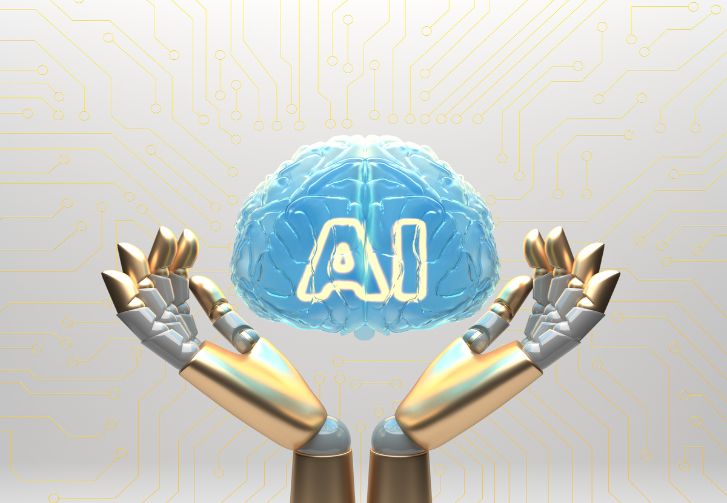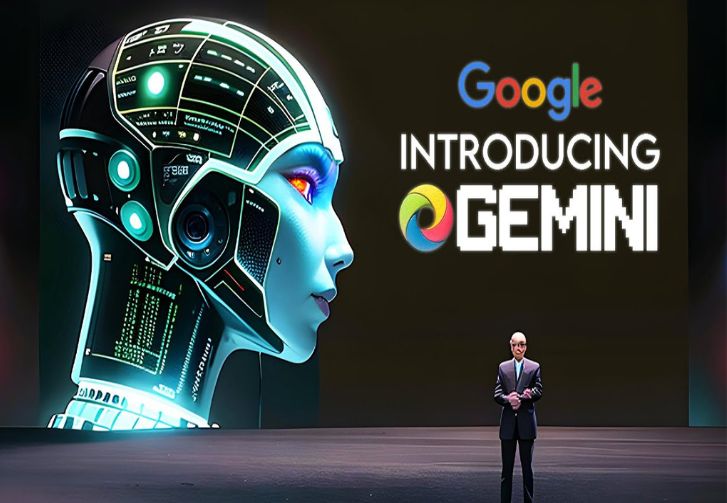
In the rapidly evolving landscape of web development, AI-powered tools have emerged as game-changers, revolutionizing the way websites are built and designed. These tools leverage artificial intelligence and machine learning to streamline the development process, enhance user experiences, and create stunning websites that cater to the ever-changing demands of the digital world. In this blog, we’ll delve into the top 10 AI tools for website building in 2023, exploring their features, benefits, and how they’re reshaping the industry.
AI (artificial intelligence) has spread in various fields helping businesses or individuals to improve productivity. You may be a website design agency or an individual to build websites. In this blog, we have discussed all about using the best AI tools for website designing. The top 10 best AI tools for website designing will help you most effectively. Whether you are an individual or a website designing agency.
AI tools are becoming the top option after improving productivity. Not just for website design but in various fields. Let us check out all the top 10 best AI tools you need to have for you to design your website.
How is AI Helping Designing Websites?
Here is how AI assists in designing and developing websites for businesses or other purposes. The best part that companies love about website designing is to have productivity at work. You will get to know how you will be productive and improve your daily work. Check each point we have explained in this blog.
1. Automated Content Generation: AI-powered tools can generate content for websites, such as product descriptions, blog posts, and news articles, by analyzing existing content and generating human-like text.
2. Personalization: AI algorithms can analyze user behavior and preferences to deliver personalized content, product recommendations, and user experiences, improving engagement and conversion rates.
3. Chatbots and Customer Support: AI-driven chatbots provide 24/7 customer support, answer common questions, and assist users in navigating the website. They can handle a wide range of customer inquiries, freeing up human agents for more complex issues.
4. Data Analytics: AI can analyze website traffic, user interactions, and conversion rates, providing insights that help optimize content, layout, and user flow for better performance.
5. Search Engine Optimization (SEO): AI tools can assist in keyword research, content optimization, and SEO strategy by analyzing search trends and recommending improvements to boost a website’s visibility in search engine results.
6. User Experience (UX) Enhancement: AI can analyze user behavior to identify areas of improvement in website design and functionality, helping designers and developers make data-driven decisions for a better user experience.
7. Automated Testing: AI-driven testing tools can identify and report bugs, performance issues, and security vulnerabilities during the website development process, ensuring a more robust final product.
8. Content Curation: AI algorithms can curate and organize content, such as images and videos, making it easier for web developers to create visually appealing and engaging websites.
9. Voice Search Optimization: With the rise of voice-activated devices, AI can help optimize websites for voice search, ensuring that content is structured and tagged in a way that’s compatible with voice search queries.
10. Predictive Analytics: AI can predict user behavior and trends, allowing website owners to proactively make changes and adjustments to cater to evolving user needs.
11. Ecommerce Recommendations: AI-powered recommendation engines analyze user browsing and purchase history to suggest relevant products or services, increasing sales and customer satisfaction.
12. Content Translation: AI-driven translation tools can automatically translate website content into multiple languages, making the website accessible to a global audience.
13. Security: AI can help identify and mitigate security threats by monitoring user activity for unusual patterns and potential attacks, protecting both the website and its users.
Top AI tools 2023 play a crucial role in website development by automating tasks, improving user experiences, enhancing content, and providing valuable insights to optimize performance and functionality. Incorporating AI into web development can result in more efficient, effective, and user-friendly websites.
Find The Top 10 AI-Powered Tools for Cutting-Edge Website Building
Here are the top 10 AI tools to help the individual or the website designing companies can get to have for them. The tools are helping organizations get the top things and improve their productivity for website designing and completing other important tasks. Check out all the top 10 AI tools for website design.
1. Wix ADI
Wix ADI (Artificial Design Intelligence) is a standout AI tool that simplifies website creation by generating personalized designs based on user input. It analyzes content and user preferences to provide a customized layout, color scheme, and design elements. With its intuitive interface, Wix ADI is perfect for beginners and small business owners looking to establish a strong online presence effortlessly. All tools added below are the popular AI tools for website designing and development. You need to have for you to design an effective website for any purpose you need to have for you.
2. Grid.AI
For developers seeking AI-driven automation for web development tasks, Grid.ai is a powerful choice. It harnesses the capabilities of machine learning to automate code optimization, deployment, and scaling. This tool not only speeds up the development process but also enhances website performance by continually optimizing resources.
3. Firedrop
Firedrop combines AI with human designers to create interactive and captivating websites. By answering a series of questions, AI assists designers in crafting unique websites tailored to the user’s needs. This tool is ideal for those who want the creativity of human designers backed by the efficiency of AI.
4. Bookmark
Bookmark takes AI website building to the next level with its Aida (Artificial Intelligence Design Assistant) feature. Aida offers real-time design suggestions and content recommendations as users build their websites. It’s like having an AI co-pilot that guides users toward creating visually stunning and user-friendly sites.
5. Adobe Sensei
Adobe Sensei, integrated into Adobe’s suite of creative tools, leverages AI to enhance web design and development. From automating repetitive tasks to generating responsive designs, Adobe Sensei empowers designers to focus on creativity while AI handles the technical aspects.
6. Sketch2React
For designers who want to convert their design files into interactive websites quickly, Sketch2React is a fantastic tool. It transforms Sketch designs into Bookmark takes AI website building to the next level with its Aida (Artificial Intelligence Design Assistant) feature. Aida offers real-time design suggestions and content recommendations as users build their websites. It’s like having an AI co-pilot that guides users toward creating visually stunning and user-friendly sites.
5. Adobe Sensei
Adobe Sensei, integrated into Adobe’s suite of creative tools, leverages AI to enhance web design and development. From automating repetitive tasks to generating responsive designs, Adobe Sensei empowers designers to focus on creativity while AI handles the technical aspects.
6. Sketch2React
For designers who want to convert their design files into interactive websites quickly, Sketch2React is a fantastic tool. It transforms Sketch designs into functional, responsive websites, eliminating the need for manual coding. This tool is perfect for designers looking to bridge the gap between design and development.
7. Weebly
Weebly, powered by AI, is one of the best AI tools that offers a user-friendly website-building experience with drag-and-drop functionality. Its AI-driven tools provide personalized recommendations for design elements, layouts, and even suggested content, making it a great choice for individuals and small businesses.
8. Superscribe by CopyAI
Content creation is a crucial aspect of website building, and Superscribe by CopyAI makes it easier. This AI tool generates engaging and SEO-friendly content for websites, blogs, and landing pages. By understanding user input, Superscribe produces high-quality copy that resonates with the target audience.
9. Wizard
Wizard stands out as an AI tool that transforms hand-drawn sketches into responsive website designs. Designers can simply draw their concepts on paper, and take a photo, and Wizard’s AI will convert it into a digital design. This tool accelerates the design phase and fosters collaboration between designers and developers.
10. Jarvis by Conversion.AI
When it comes to crafting compelling website content, Jarvis by Conversion.ai is a reliable AI companion. It generates persuasive copy, blog posts, and product descriptions using advanced language models. By understanding the context and tone, Jarvis helps website owners deliver engaging content consistently.
These are the top 10 AI tools for website design. Utilizing the tool for you or your entire agency. You can improve the productivity, creativity, and innovation you need to have for your organization using AI-powered tools for website design. When you get to have all these for you they help you with the top solution you need. The best free AI tools to help you with designing and adding creativity to designing a website.
Conclusion
The AI-powered tools mentioned above are reshaping the landscape of website building by offering efficiency, creativity, and innovation. Whether you are a novice seeking an intuitive design experience or a developer aiming to automate complex tasks, these tools are driving the future of web development in 2023 and beyond. Embracing AI in website building empowers individuals and businesses to create stunning, user-centric websites that captivate audiences in the digital era. These AI-based website builders will help you a lot and provide you with the top productivity you want to have for you. If you are looking for more such informative content to be provided. We have the top and best solutions you need to have for you to design the website you want. You can also comment below to get the thing you are looking for.
FAQs
1. Which AI tool is the best?
The choice of the best AI tool depends on your specific needs and goals. Some popular AI tools and platforms include TensorFlow, PyTorch, Microsoft Azure AI, IBM Watson, and Google Cloud AI. The “best” one for you will depend on factors like your project requirements, programming language preference, and budget.
2. What is the best free AI to use?
There are several free AI tools and libraries available. Two popular ones are TensorFlow and PyTorch, which are open-source deep learning frameworks. These tools are widely used in the AI community and offer extensive resources, tutorials, and community support. However, the “best” free AI tool may still vary based on your specific use case and expertise.
3. Which AI app is everyone using?
The popularity of AI apps can vary by region and demographics. Apps like Siri (Apple), Google Assistant (Google), and Amazon Alexa (Amazon) are widely used for voice-controlled AI assistance. Social media platforms like Facebook, Instagram, and TikTok also employ AI algorithms for content recommendations. The choice of AI apps often depends on individual preferences and device ecosystems.
4. What is Google’s AI called?
Google has developed various AI technologies and projects. One of the most well-known AI efforts by Google is TensorFlow, which is an open-source machine learning framework. Additionally, Google has developed AI algorithms for various applications, such as Google Search, Google Photos, and Google Translate, but these do not have a specific name other than being part of Google’s broader AI initiatives.
5. What is the best AI chatbot?
The best AI chatbot can depend on the specific use case and requirements. Some popular AI chatbot platforms include Microsoft Bot Framework, Dialogflow by Google, IBM Watson Assistant, and Rasa. The choice of the best AI chatbot will depend on factors like natural language processing capabilities, integration options, and customization features, among others. It’s essential to evaluate which chatbot platform aligns with your project goals and user needs.







